Breast Augmentation in Daejeon
Search and Compare the Best Clinics and Doctors at the Lowest Prices for Breast Augmentation in Daejeon
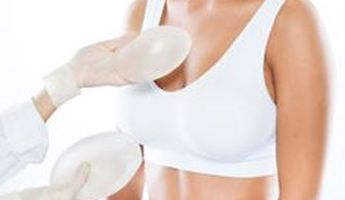
Find the best clinics for Breast Augmentation in Daejeon
With Medijump you can browse 1 facilities offering Breast Augmentation procedures in Daejeon. The cheapest price available is $5,600 in Seoul
Breast Augmentation in South Korea
Price: $ 5,600
Breast Augmentation in Seoul
Price: $ 5,600
Breast Augmentation in Daejeon
Price: $ 6,141
Hungary offers the best prices Worldwide
Price: $ 208
From 1 verified reviews
HARRY CHO, 16 March 2019
This hospital is wonderful hospital! Staffs are kind. Doctors are proficient! Price is reasonable!
- Home
- South Korea
- Daejeon
Compare Before & After Photos of _procedure_photos.phpBreast Augmentation
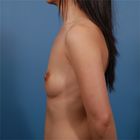
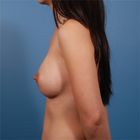
Full-side view
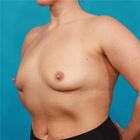
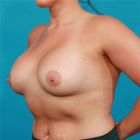
Half-side view
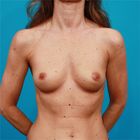
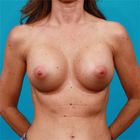
Front view
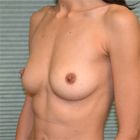
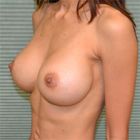
Half-side view
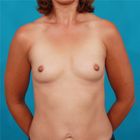
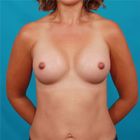
Front view
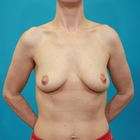
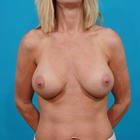
Front view
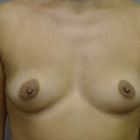
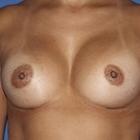
Front view
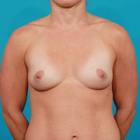
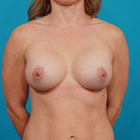
Front view
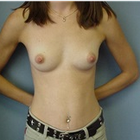
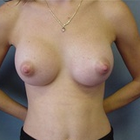
Front view
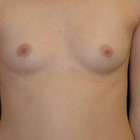
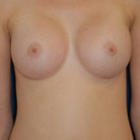
Front view
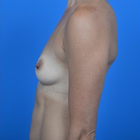
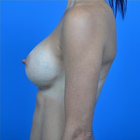
Full-side view
WHY US?
At Medijump, we're making medical easy. You can search, compare, discuss, and book your medical all in one place. We open the door to the best medical providers worldwide, saving you time and energy along the way, and it's all for FREE, no hidden fees, and no price markups guaranteed. So what are you waiting for?

Free

Best Price

Widest Selection

Risk-Free
What you need to know about Breast Augmentation in Daejeon

Breast augmentation, also known as a Boob Job or Breast Enlargement, is a surgical procedure aimed at increasing breast size, enhancing shape, or improving symmetry. In Daejeon, this procedure is carried out by board-certified plastic surgeons in accredited medical facilities, ensuring both safety and quality.
What is the cost of Breast Augmentation in Daejeon?
Prices in Daejeon are competitive, often offering savings without compromising on quality, especially when compared to costs in the US or Europe. However, factors such as surgeon’s fees, facility costs, and the type of implants affect the total cost.
What does a Breast Augmentation Procedure Involve?
The surgery involves placing breast implants under the breast tissue or chest muscles. Choices between saline or silicone implants can be made based on the desired feel and appearance. This is something your surgeon will discuss with you prior to even travelling.
How Long Should I Stay in Daejeon for a Breast Augmentation Procedure?
The length of stay in Daejeon for a Breast Augmentation is subject to various factors, such as your overall health, the specific nature of the procedure, and your individual recovery rate. Generally, Breast Augmentation surgery is an outpatient process, meaning you may be able to return home on the same day. However, a stay of up to two days might be necessary if your procedure is more intricate.
Although the hospital stay is relatively brief, it is advisable to remain in Daejeon for at least one-week post-procedure. This timeframe allows for initial recovery and a follow-up appointment with the surgeon. Moreover, in the event of any complications, prompt medical assistance will be accessible. Thorough knowledge of the recovery process and its duration is crucial for proper preparation and managing stress during treatment.
What's the Recovery Time for Breast Augmentation Procedures in Daejeon?
Post-surgery, a recovery period of one to two weeks is generally required, with follow-up visits to the surgeon. It's crucial to follow all post-op instructions for optimal healing.
Experiencing swelling and discomfort following the operation is normal, both of which should gradually alleviate with time. You will be required to wear a compression garment, take prescribed medications, and maintain a healthy lifestyle for an effective recovery.
What sort of Aftercare is Required for Breast Augmentation Procedures in Daejeon?
Post-operative care is critical for the success of a Breast Augmentation. The initial recovery phase usually includes prescribed medications to alleviate pain and avert infection. Individuals can normally resume everyday activities within a few weeks, depending on their healing pace and bodily responses. However, it is advisable to refrain from vigorous activities for a minimum of six weeks post-procedure.
What's the Success Rate of Breast Augmentation Procedures in Daejeon?
In Daejeon, Breast Augmentation boasts a relatively high success rate, which contributes to its immense popularity among individuals seeking improvements in their physical appearance. Numerous patients have reported satisfaction and enhanced confidence after undergoing the procedure, making it a widely favoured cosmetic surgery.
Are there Alternatives to Breast Augmentation Procedures in Daejeon?
In Daejeon, there are several alternatives to the Breast Augmentation. If you're considering breast augmentation strictly for cosmetic reasons and prefer non-surgical options, various suitable methods are available. Alternatives include fat grafting, hormonal therapy, and natural remedies. Fat grafting, also known as fat transfer, involves removing fat from different body parts and injecting it into your breasts. This approach is regarded as safer because it employs the body's tissue, minimizing complications.
What Should You Expect Before and After the Procedure?
Prior to the procedure, your surgeon will discuss your expectations and the anticipated outcomes of your Breast Augmentation. The preoperative consultation comprises an in-depth conversation about your medical history, a physical examination, and an outline of the procedure and postoperative care. Open and candid communication with your healthcare provider is crucial at this stage to ensure the treatment matches your objectives.
Post-procedure, initial swelling and discomfort are normal and can be managed with prescribed medication. It's vital to adhere to your surgeon's post-operative guidelines, which include caring for surgical incisions, taking prescribed medications, and attending follow-up appointments. As swelling subsides and incision lines fade gradually, your enhanced breast profile will become apparent.
Keep in mind that the decision to pursue a Breast Augmentation is deeply personal and should not be made hastily. Allocate time to consider the advantages and drawbacks, and ensure you are well-informed.
What are the Risks and Complications of Breast Augmentation Procedures in Daejeon?
As is the case with any surgical intervention, Breast Augmentation comes with its own set of risks and potential complications that need to be considered. These may include infections, bleeding, alterations in nipple or breast sensations, implant leakage or rupture, development of scar tissue, and unsatisfactory outcomes that could necessitate further surgeries.
Some individuals may also encounter complications tied to anesthesia, such as respiratory problems and reactions to medication. The psychological ramifications should not be overlooked, considering surgical procedures can impact mental well-being. An extensive conversation with your healthcare provider about these potential risks remains a key component in making an informed choice.
How to Prepare for Breast Augmentation in Daejeon?
Thorough preparation plays a significant role in the success of your Breast Augmentation. Before the surgery, you must have detailed conversations with your surgeon about your medical background, allergies, current medications, and lifestyle habits such as smoking or alcohol consumption. You may need to cease certain medications and habits, including smoking, weeks before the procedure, as they can influence the healing process.
Practical preparations like organizing for someone to be with you on the day of the surgery, scheduling sufficient time off work for recovery, and establishing a comfortable space at home for recuperation can contribute to a smoother post-operative phase. Your surgeon's team will also advise you on pre-operative fasting and hygiene guidelines.
What are some Common Misconceptions about Breast Augmentation?
Despite its widespread popularity, numerous misconceptions surround the Breast Augmentation. One such misconception asserts that breast implants are permanent. In actuality, breast implants may require replacement after 10-15 years, with the specific timeframe depending on individual health and lifestyle factors. Another false assumption is that breast augmentation solely serves vanity purposes. In reality, many patients undergo this procedure following mastectomy or as part of gender-affirming surgery.
A further common myth suggests that breast augmentation hinders breastfeeding. While a few instances might affect breastfeeding, the majority of individuals with breast implants can successfully breastfeed.
Whilst the information presented here has been accurately sourced and verified by a medical professional for its accuracy, it is still advised to consult with your doctor before pursuing a medical treatment at one of the listed medical providers
No Time?
Tell us what you're looking for and we'll reachout to the top clinics all at once
Enquire Now

Popular Procedures in Daejeon
Prices Start From $834

Prices Start From $500

Prices Start From $93

Prices Start From $85

Prices Start From $477

Prices Start From $931

Recommended Medical Centers in Daejeon for Breast Augmentation

- Interpreter services
- Translation service
- Religious facilities
- Medical records transfer
- Medical travel insurance
- Health insurance coordination
- TV in the room
- Safe in the room
- Phone in the room
- Private rooms for patients available

- Interpreter services
- Translation service
- Religious facilities
- Medical records transfer
- Medical travel insurance
- Health insurance coordination
- TV in the room
- Safe in the room
- Phone in the room
- Private rooms for patients available

- Interpreter services
- Translation service
- Religious facilities
- Medical records transfer
- Medical travel insurance
- Health insurance coordination
- TV in the room
- Safe in the room
- Phone in the room
- Private rooms for patients available

- Interpreter services
- Translation service
- Religious facilities
- Medical records transfer
- Medical travel insurance
- Health insurance coordination
- TV in the room
- Safe in the room
- Phone in the room
- Private rooms for patients available

- Interpreter services
- Translation service
- Religious facilities
- Medical records transfer
- Medical travel insurance
- Health insurance coordination
- TV in the room
- Safe in the room
- Phone in the room
- Private rooms for patients available

- Interpreter services
- Translation service
- Religious facilities
- Medical records transfer
- Medical travel insurance
- Health insurance coordination
- TV in the room
- Safe in the room
- Phone in the room
- Private rooms for patients available

- Interpreter services
- Translation service
- Religious facilities
- Medical records transfer
- Medical travel insurance
- Health insurance coordination
- TV in the room
- Safe in the room
- Phone in the room
- Private rooms for patients available

- Interpreter services
- Translation service
- Religious facilities
- Medical records transfer
- Medical travel insurance
- Health insurance coordination
- TV in the room
- Safe in the room
- Phone in the room
- Private rooms for patients available

- Interpreter services
- Translation service
- Religious facilities
- Medical records transfer
- Medical travel insurance
- Health insurance coordination
- TV in the room
- Safe in the room
- Phone in the room
- Private rooms for patients available

- Interpreter services
- Translation service
- Religious facilities
- Medical records transfer
- Medical travel insurance
- Health insurance coordination
- TV in the room
- Safe in the room
- Phone in the room
- Private rooms for patients available
Breast Augmentation in and around Daejeon
About Daejeon
With a population of around 1.5 million people, Daejeon is the 5th largest city in South Korea. Due to its location in the center of Korea, it is a major transit hub for the region. It’s an important science and education center, with more than 200 research institutes located within its area. As South Korea’s medical tourism continues to flourish, Daejeon has undertaken strategic development to grow its medical tourism industry. The city is establishing its healthcare system by providing outstanding medical technology both in the private and public sector, improving its medical services, carrying out overseas marketing activities, as well as developing medical tourism products and medical tourism coordinators.
Popular Parts of Daejeon
The most popular part of Daejeon is Yuseong-gu, the administrative district in the northwest part of the city. It is home to Yuseong hot springs resort town, where visitors can find a hot spring that can counter many types of illnesses. The hot spring contains alkaline minerals, such as sulfur, calcium, potassium, silicic acid, and radium. An especially high concentration of radium is found in the hot spring, which is known to be good for neuralgia and geriatric diseases. Around the area of Yuseong hot springs resort town are upscale shopping areas, accommodation, as well as numerous cultural centers and sightseeing places. Another popular area is Dunsan, the city’s central business district filled with shops and restaurants. Besides these two areas, there several popular places for sightseers, including the mountains Sikjangsan and Jangtaesan, the lake Daecheonghosu, Expo Science Park, and Daejeon O-World.
Transport in Daejeon
The international airport serving Daejeon is the Cheongju International Airport, which is located in Cheongwon-gu. It has several flights to and from cities in Asia. However, most international tourists arrive at Incheon International Airport and travel to the city with a shuttle bus from the airport or a KTX express train from Seoul. The most convenient and affordable way to get around Daejeon is by inner-city bus and the subway. Visitors can buy T-money travel cards to reduce the fares of the bus and subway. Taxis are available, but make sure to avoid unregistered taxis.
Visas in Daejeon
Holders of passports from 112 countries, including the EU, the US, and Russia, can visit Daejeon without a visa for 30, 60, and 180 days. Citizens of other countries not listed in the visa-free entry should apply and obtain a visa prior to their visit.
Weather in Daejeon
There are four seasons in Daejeon. Summer, starting from June to August, is typically hot and rainy. From September to late November is autumn, which has pleasant weather. Winter, from late November to March, can be freezing. The temperature will slowly rise in spring, but rainfall is more common.
Additional Info
- Local Currency: The official currency in Daejeon is South Korean Won (KRW). 1 USD is approx. 1,185 KRW.
- Money & Payments: ATMs accepting international cards are widely available. Credit cards are accepted at many restaurants, hotels, and shops. Tipping is not expected and can be considered rude in restaurants. However, it is okay to tip guides and porters.
- Local Language: Korean is the official language, with Hangul as the formal script. English is mostly spoken in tourist areas.
- Local Culture and Religion: Around 47% of the population is not religious or follows indigenous religions. Buddhism and Christianity are freely practiced.
- Public Holidays: New Year’s Day, Independence Day, and the Birthday of Buddha are some of the important public holidays in Daejeon.
Popular Searches
- Plastic Surgery in Thailand
- Dental Implants in Thailand
- Hair Transplant in Thailand
- Breast Augmentation Thailand
- Gastric Sleeve in Thailand
- Gender Reassignment Surgery in Thailand
- Laser Hair Removal in Bangkok
- Botox in Bangkok
- Dermatology in Bangkok
- Breast Augmentation in Bangkok
- Coolsculpting in Bangkok
- Veneers in Turkey
- Hair Transplant in Turkey
- Rhinoplasty in Turkey
- Stem Cell Therapy in Mexico
- Rhinoplasty in Mexico
- Liposuction in Mexico
- Coolsculpting in Tijuana
- Rhinoplasty in Korea
- Scar Removal in Korea
- Gastric Sleeve in Turkey
- Bone Marrow Transplant in India
- Invisalign in Malaysia
- Plastic Surgery in the Dominican Republic
- Tummy Tuck in the Dominican Republic
- Plastic and Cosmetic Surgery in Poland
- Rhinoplasty in Poland
- Hair Implant in Poland
- Dental Implants in Poland
- IVF in Turkey
